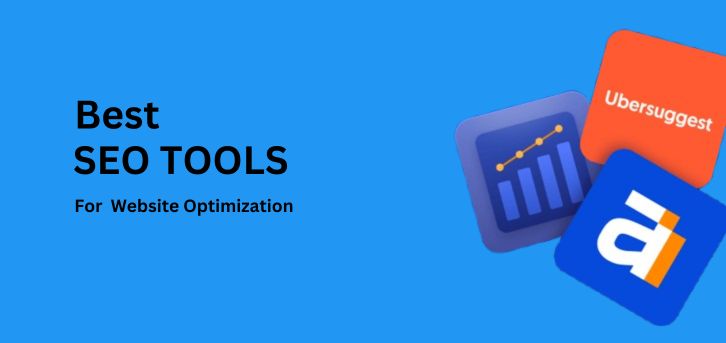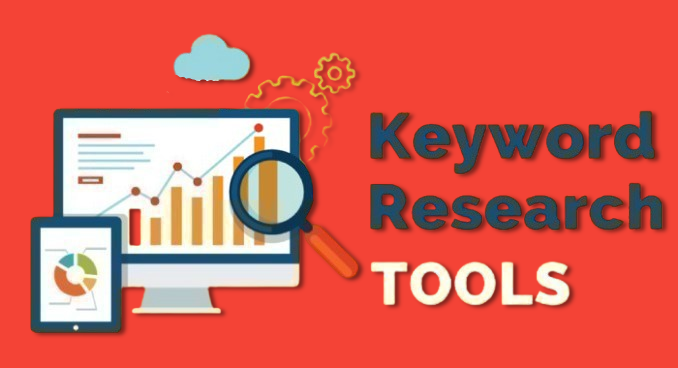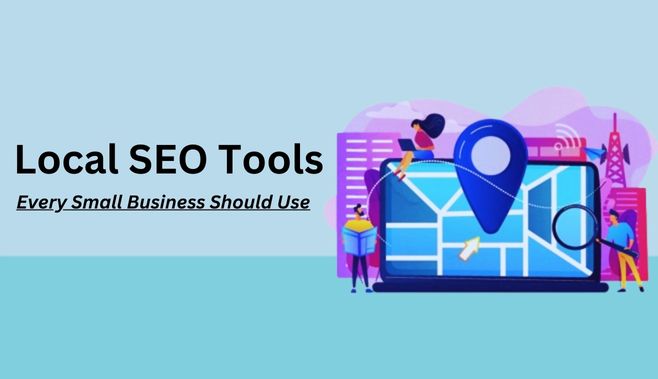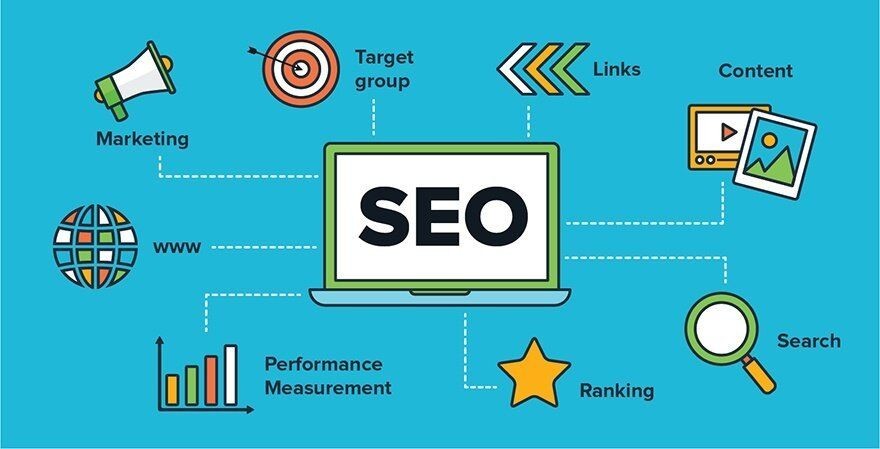
Search Engine Optimization (SEO) web tools are invaluable in enhancing your website’s visibility and ensuring your digital presence thrives. These tools deliver key insights about your site’s performance, empowering you to climb higher on search engine results pages.
In today’s fast-paced digital landscape, having a robust online presence isn’t just an advantage—it’s a necessity. Whether you’re managing a business website or running a personal blog, attracting visitors is your ultimate goal. SEO tools act as your digital allies, offering solutions to improve your site’s performance. They help you identify high-performing keywords, assess your current rankings, and even analyze the strategies of your competitors.
This treasure trove of information is pivotal for informed decision-making. With these tools in your arsenal, you can uncover hidden strengths and pinpoint areas that need improvement. They allow you to fine-tune your content, making it more engaging and search-friendly. Whether you’re stepping into the world of SEO for the first time or seeking to refine your existing strategy, these tools are indispensable. They demystify the intricate mechanics of search engine optimization, equipping you to achieve your goals with confidence and precision
Introduction To Seo Web Tools
SEO web tools help improve your website’s performance. They analyze data, suggest changes, and track results. Using these tools boosts your online visibility. More visibility means more visitors. More visitors can lead to more sales.
Importance Of Seo For Online Visibility
SEO is essential for achieving success online. It plays a critical role in improving a website’s ranking on search engines. Higher rankings not only increase visibility but also attract more clicks and drive significant traffic to your site.
- Increased Traffic: More visitors find your site.
- Better User Experience: SEO improves site navigation.
- Brand Credibility: High-ranking sites gain trust.
- Cost-Effective: SEO offers long-term benefits with low cost.
Types Of Seo Tools For Different Needs
Various SEO tools serve different purposes. Here are some common types:
| Tool Type | Purpose |
| Keyword Research Tools | Find popular search terms. |
| On-Page SEO Tools | Optimize content and HTML. |
| Backlink Analysis Tools | Examine links to your site. |
| Site Auditing Tools | Check for technical issues. |
| Rank Tracking Tools | Monitor your keyword rankings. |
Choosing the right tool is essential. Each tool addresses specific SEO needs. Using a combination often yields the best results.

Keyword Research Tools
Keyword research tools are essential for discovering the right words to use in your content. By leveraging these tools, you can enhance your website’s visibility, ensuring it reaches the right audience. They provide insights that help you select the most effective keywords tailored to your audience’s needs and interests.
Identifying Target Keywords
Discovering the right keywords is crucial for achieving online success. Here are some tips to help you:
- Think about your audience’s needs.
- Use tools like Google Keyword Planner.
- Look for long-tail keywords. They are specific.
- Check competitors’ keywords.
Long-tail keywords tend to have significantly lower competition, which can make them much easier to rank for compared to broader, more general terms. By targeting specific, longer phrases, you increase your chances of appearing higher in search results. It’s crucial, however, to select keywords that align closely with the core of your content. This strategy not only boosts your visibility but also attracts visitors who are genuinely interested in what you have to offer, ensuring your audience is more targeted and engaged.
Analyzing Keyword Difficulty And Volume
Keyword difficulty (KD) measures the level of competition for a particular keyword, while search volume tells you how frequently that keyword is being searched.
| Keyword | Difficulty | Search Volume |
| SEO tools | Medium | 1,000 |
| Keyword research | High | 2,500 |
| Best SEO practices | Low | 800 |
Both of these elements play a crucial role in selecting the most effective keywords for your SEO strategy. To boost your chances of achieving higher rankings, focus on keywords that have a healthy search volume but relatively low competition. This approach enables you to target high-potential keywords that aren’t oversaturated. By leveraging these insights, you can fine-tune and enhance your content strategy for better results.
On-page Optimization Tools
On-page optimization tools play a vital role in enhancing website content and boosting its visibility in search engine results. These tools focus on elements within individual web pages, ensuring that your site is optimized for both search engines and users. Key areas of on-page optimization include meta tags, content structure, and effective keyword usage. Let’s dive into some of the essential tools that can help you improve your on-page SEO and elevate your website’s performance.
Improving Meta Tags And Descriptions
Meta tags are vital for optimizing your site’s visibility in search engines, as they provide key information about your page’s content. A compelling title tag, for instance, can attract attention and increase click-through rates. It’s essential to make the title tag concise, yet highly relevant to the page’s content, ensuring that it accurately reflects what users will encounter when they visit your site.
Meta descriptions summarize your page’s content. A clear and engaging description encourages clicks. Use keywords naturally in both tags. This helps search engines understand your topic.
Tools like Yoast SEO and SEMrush can help. They analyze your meta tags. These tools suggest improvements for better performance. Regularly updating these tags keeps your content fresh.
Ensure Proper Formatting for Enhanced Readability
To improve the readability and overall user experience of your content, proper formatting is crucial. Here are some tips for effective formatting:
- Use Bullet Points and Lists
Breaking down key information into concise bullet points or numbered lists makes it easier for readers to absorb. This also allows them to quickly locate important points without sifting through large paragraphs. - Organize the Content
A well-structured layout keeps the content clear and accessible. Start with an engaging introduction, follow with logically ordered sections, and conclude with a strong summary or call to action. - Avoid Large Blocks of Text
Long, uninterrupted paragraphs can overwhelm readers and make your content difficult to navigate. Instead, use short paragraphs that focus on one point at a time. This keeps the reader engaged and helps them easily process information. - Use Headings and Subheadings
Divide your content into sections with descriptive headings. This helps guide the reader through the text and gives them a roadmap of what to expect. - Highlight Important Information
Bold or italicize critical phrases or terms to draw attention to them. This allows users to quickly pick up on the key takeaways.
By following these formatting tips, you can create content that is not only visually appealing but also user-friendly and easy to navigate.
Technical Seo Auditing Tools
Technical SEO auditing tools help assess a website’s health. They find issues that affect search visibility. Using these tools is essential for improving site performance. They make your website faster and easier for search engines to read.
Site Health Checks For Seo
Site health checks are crucial for maintaining and improving your SEO strategy. Regularly assessing your website’s health ensures that it remains in optimal condition for both search engines and users.
- Page Speed: A slow site can lose visitors.
- Mobile-Friendliness: Sites must work well on mobile devices.
- Broken Links: These lead to poor user experience.
- XML Sitemap: Ensure it is properly structured and submitted.
Many tools provide detailed site health reports. They highlight areas needing attention. Some popular tools include:
| Tool | Features |
| Google Search Console | Indexing issues, crawl errors, mobile usability |
| Screaming Frog | Site audits, broken links, metadata checks |
| Ahrefs | Site audit, backlinks analysis, keyword tracking |
Solving Common Technical Seo Issues
Technical SEO issues can be tricky. They often require specific tools to fix. Here are common problems and solutions:
- Duplicate Content: Use canonical tags to avoid confusion.
- Redirect Chains: Reduce them to improve load times.
- Missing Alt Text: Add descriptive alt text to images.
- Improper Use of Robots.txt: Ensure it allows search engines to crawl important pages.
Fixing these issues boosts your site’s SEO. Regular audits help catch problems early. Choose tools that fit your needs. Stay proactive for best results.
Backlink Analysis And Link Building Tools
Backlinks are vital for SEO. They help improve site ranking. Strong backlinks come from trusted websites. Analyzing these links is crucial. It shows how your site performs online. Various tools can help with this task.
Backlink analysis tools provide insights. They show where your links come from. They also reveal link quality. Understanding this data helps build a better strategy. Link building tools make the process easier.
Tracking Backlink Profiles
Tracking your backlink profile is essential. It helps you see who links to your site. Tools like Ahrefs and SEMrush can help. They offer detailed reports on backlinks.
Look for metrics like Domain Authority. High Domain Authority means a stronger link. Check the number of referring domains too. More domains usually mean better quality.
Monitor your backlinks regularly. This helps spot any lost links. Lost links can affect your SEO. Reclaiming these links can improve your rankings.
Strategies For Acquiring Quality Backlinks
Building quality backlinks takes time. Start by creating great content. Content that adds value attracts links naturally.
Guest blogging is another effective strategy. Write articles for other sites in your niche. Include a link back to your site in your bio. This builds connections and earns backlinks.
Engaging in online communities helps too. Join forums and discussion groups. Share your expertise and link back to relevant content.
Remember, focus on quality over quantity. A few strong backlinks are better than many weak ones. Building relationships with other site owners works well. Collaborate on projects for mutual benefits.

Local Seo Enhancement Tools
Local SEO enhancement tools help businesses reach nearby customers. These tools improve visibility in local search results. They make it easier for people to find your business online.
Businesses can benefit from local search. Many customers search for services nearby. Using local SEO tools can attract more customers. They help you stand out in local listings.
Optimizing For Local Search
Optimizing for local search is essential for small businesses. Start with keyword research. Use phrases that local customers search for. Include your city or neighborhood in these keywords.
Focus on creating localized content. Write blog posts about local events or news. Share stories that connect your business to the community.
Use schema markup to enhance your site. Schema helps search engines understand your business better. This can improve your chances of showing up in local results.
Managing Local Business Listings
Managing local business listings is crucial for visibility. Ensure your business information is accurate. Use the same name, address, and phone number everywhere.
Claim your listings on Google My Business. This helps your business appear on Google Maps. It also shows up in local search results.
Encourage customers to leave reviews. Positive reviews build trust. They also improve your rankings in local searches.
Regularly update your listings with new information. Include hours of operation, services, and promotions. This keeps customers informed and engaged.
Mobile Optimization Tools
Mobile optimization tools help websites perform well on mobile devices. They ensure users have a good experience when browsing on smartphones or tablets. Mobile-friendly sites rank better in search engines. This leads to more visitors and better engagement. Here are two key aspects of mobile optimization tools.
Ensuring Mobile-friendliness
Making your website mobile-friendly is crucial. A mobile-friendly site adjusts to different screen sizes. Use the following tools to check your site’s mobile-friendliness:
- Google Mobile-Friendly Test: Enter your URL to see if it is mobile-friendly.
- Responsive Design Checker: Check how your site looks on various devices.
- BrowserStack: Test your website across different browsers and devices.
Ensure your website has:
- Readable text without zooming.
- Clickable buttons that are easy to tap.
- Images that load quickly and fit the screen.
Improving Mobile Page Speed
Page speed is vital for mobile users. Slow-loading pages can frustrate visitors. Use these tools to improve your mobile page speed:
- Google PageSpeed Insights: Analyze your site and get speed suggestions.
- GTmetrix: Check your page speed and performance metrics.
- Pingdom: Monitor your website’s load time.
Consider these tips to enhance speed:
| Tip | Description |
| Optimize Images | Compress images to reduce file size. |
| Minify CSS and JavaScript | Remove unnecessary code to speed up loading. |
| Use a Content Delivery Network (CDN) | Distribute content from servers close to users. |
Improving your mobile page speed leads to better user experience. Fast sites keep visitors engaged.

Credit: mikekhorev.com
Tracking And Reporting Tools
Tracking and reporting tools play a vital role in SEO strategy. They help you understand how well your website is performing. These tools give insights into traffic, rankings, and user behavior. Knowing this information helps you make better decisions. You can adjust your strategies based on real data. This leads to improved results over time.
Monitoring Seo Progress
Monitoring SEO progress is essential for success. Regular checks show how your keywords rank. These tools track changes in traffic and engagement. They provide reports that highlight trends over time. You can see what works and what doesn’t. This helps you focus on effective strategies. Simple dashboards make it easy to understand data. Look for tools that offer visual graphs and charts.
Analyzing Competitor Performance
Understanding competitor performance is crucial. SEO tools can show you how competitors rank. You can see their keywords and traffic sources. This information helps you identify gaps in your strategy. Learn from their strengths and weaknesses. Use this knowledge to improve your own site. Knowing what others do can guide your next steps. Choose tools that allow side-by-side comparisons for the best insights.
Integrating Seo Tools With Analytics
Integrating SEO tools with analytics is essential for success. This combination helps understand how SEO affects website performance. By analyzing data, businesses can improve their strategies. The insights gained can drive better results.
Combining Seo Data With User Behavior
Understanding user behavior is crucial for effective SEO. SEO tools provide data on keywords and rankings. Analytics tools show how users interact with a site. Together, they create a complete picture.
- Keyword Performance: Identify which keywords attract users.
- Page Views: See which pages users visit most often.
- Bounce Rate: Measure how many users leave after one page.
Analyzing this data helps identify trends. Are users finding what they need? Are they staying on the site? This information helps refine content strategies.
Utilizing Analytics For Seo Strategy Refinement
Analytics tools offer insights for refining SEO strategies. Regularly reviewing data can reveal patterns. This allows businesses to adapt their approach.
- Track Organic Traffic: Monitor traffic from search engines.
- Analyze Conversion Rates: Understand how many visitors take action.
- Identify Top-Performing Content: Focus on what works best.
Combining these insights leads to better decision-making. SEO strategies become more targeted. Continuous improvement is possible with the right data.
credit : Simplilearn
Future Of Seo Tools
The future of SEO tools is bright and full of changes. New technologies will shape how websites rank. These tools will help marketers and businesses adapt quickly. Keeping up with trends is crucial for success.
Emerging Technologies In Seo
Several new technologies are changing SEO tools. Here are some of the most important:
- Artificial Intelligence (AI): AI helps analyze data faster. It can predict trends and suggest improvements.
- Machine Learning: This technology learns from data. It improves search results based on user behavior.
- Voice Search Optimization: More people use voice search. Tools will focus on optimizing for this trend.
- Visual Search: Users can search using images. SEO tools will need to adapt to this method.
- Data Analytics: Advanced analytics tools will provide deeper insights. They will help understand user engagement better.
Adapting To Algorithm Updates
Search engines update algorithms often. SEO tools must adapt quickly. Here are ways they will change:
- Real-time monitoring of changes.
- Alerts for significant updates.
- Guidance on how to adjust strategies.
- Tools will offer insights into ranking factors.
- Improved reporting features to track progress.
Staying ahead is important. SEO tools will make adapting easier. Businesses will benefit from these advancements.
Frequently Asked Questions
What Are Seo Web Tools?
SEO web tools are applications designed to enhance website visibility on search engines. They provide insights into keywords, backlinks, site performance, and competition analysis. Using these tools helps optimize your website for better rankings. Popular examples include Google Analytics, SEMrush, and Moz, which offer valuable data for SEO strategies.
How Do Seo Tools Improve Rankings?
SEO tools improve rankings by analyzing website performance and identifying optimization areas. They provide keyword suggestions, track site health, and monitor backlinks. By utilizing these insights, you can refine your content strategy and enhance user experience. This ultimately leads to higher search engine rankings and increased organic traffic.
Which Seo Tools Are Best For Beginners?
For beginners, user-friendly SEO tools like Yoast SEO, Ubersuggest, and Google Search Console are highly recommended. These tools offer intuitive interfaces and comprehensive guides. They help with keyword research, on-page SEO, and performance tracking. As you become more experienced, you can explore advanced tools for deeper analysis.
Are Free Seo Tools Effective?
Yes, free SEO tools can be effective for basic optimization needs. They provide essential features like keyword analysis, traffic tracking, and site audits. While they may lack advanced functionalities, they are suitable for small businesses and beginners. Examples include Google Analytics and Ubersuggest, which offer valuable insights without cost.
Conclusion
Using SEO web tools is essential for success online. They help improve your website’s visibility. Simple tools can track your performance and suggest improvements. You can analyze keywords and monitor competition easily. Regular use of these tools keeps your content relevant.
This will attract more visitors and increase engagement. Make SEO tools a part of your strategy. With the right tools, you can achieve your online goals. Start exploring them today and see the difference they make. Your website deserves to shine in search results.

 Get it on
Get it on  Download on the
Download on the